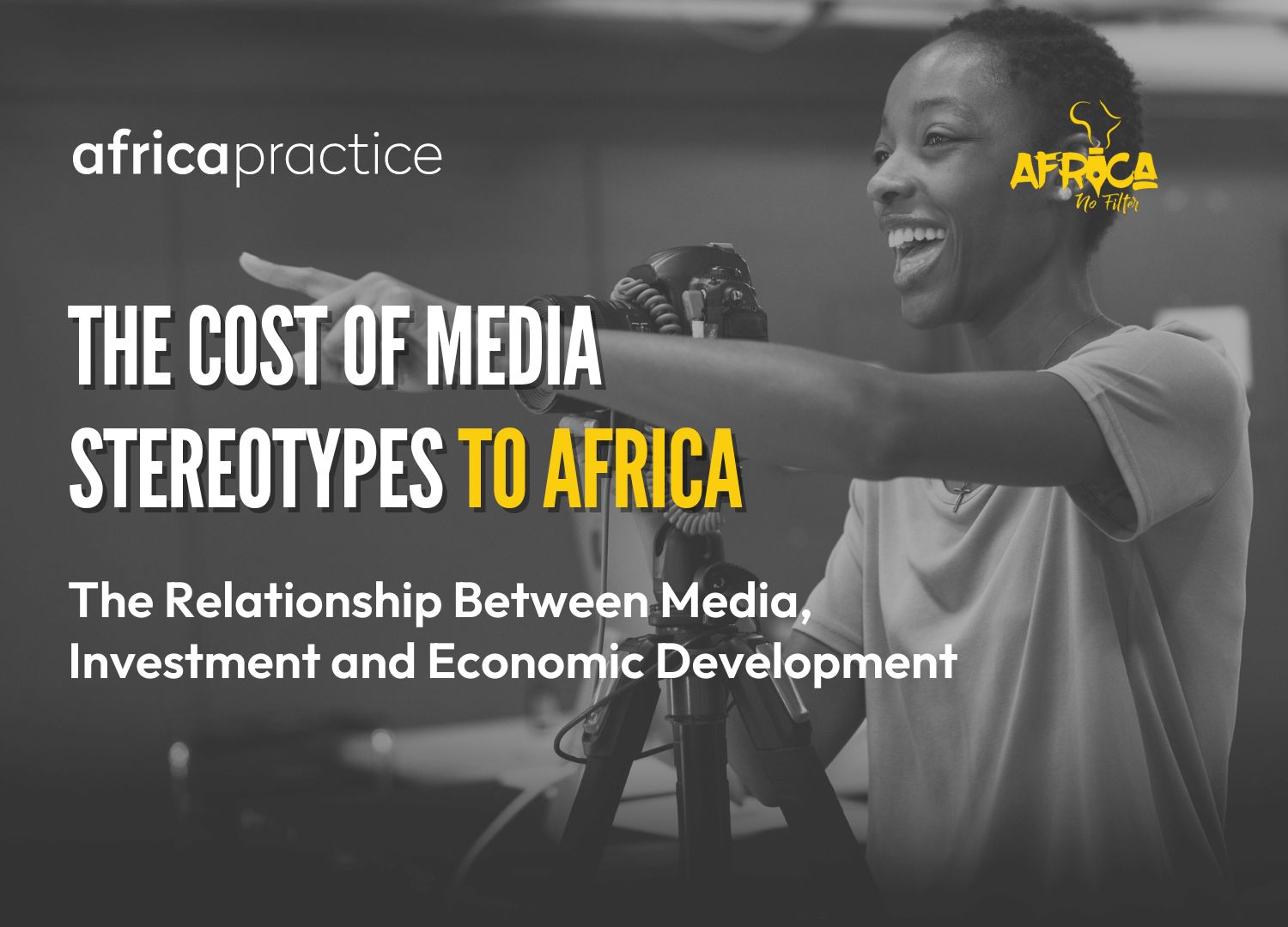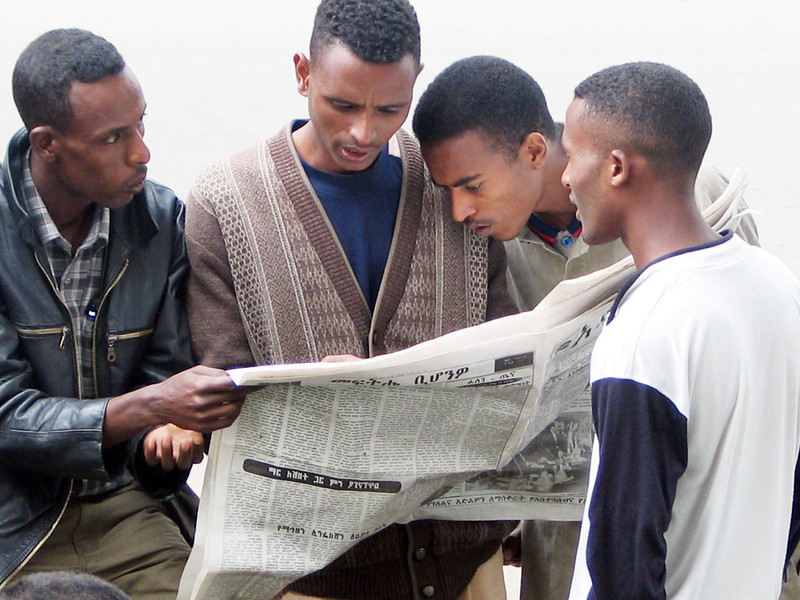We are excited to announce that Brink is now part of Africa Practice. Learn more
Stereotypical media narratives deprive Africa and FDI community of $Billions annually, new study reveals

The study highlights the significant cost burden that biased media coverage imposes on African nations, particularly during electoral periods, ultimately deterring foreign direct investment (FDI) in a continent known for its low default rates and high returns in strategic sectors.
New research conducted by Africa No Filter and Africa Practice, reveals that African nations pay a ‘prejudice premium’ of billions of dollars on debt servicing alone.
The study, titled The Cost of Stereotypes to Africa, employs a combination of quantitative analysis and qualitative insights to explore the financial repercussions of media bias. The research focuses on electoral processes in four African nations: Kenya, Nigeria, South Africa, and Egypt, comparing media coverage with that of Malaysia, Denmark and Thailand – nations with similar country risk profiles.
Economic impact of biased media reporting
To estimate the economic cost of biased media coverage, researchers calculated potential savings in debt servicing costs for Nigeria, Kenya, Egypt, and South Africa. The study used academic estimates indicating that media sentiment can influence borrowing interest rates by up to 10%, with a 10% improvement leading to a 1% decrease in rates.
By comparing actual debt servicing costs with those adjusted for improved media sentiment, the researchers estimated potential savings of up to 0.14% of GDP per year. Extrapolating this to the entire continent, Africa loses up to $4.2 billion annually due to unrepresentative negative media narratives.
Key findings:
- Financial impact: The study estimates that the ‘prejudice premium’ on debt servicing costs African countries $4.2 billion each year. This amount could fund the education of over 12 million children, provide immunizations for more than 73 million children, or ensure clean drinking water for two-thirds of Nigeria’s population.
- Media bias during elections: The research focuses on media coverage during elections in four African countries—Kenya, Nigeria, South Africa, and Egypt—compared to non-African nations like Malaysia and Denmark. It found that negative narratives dominate the discourse around African elections, with 88% of media articles about Kenya during its election period reported as negative, compared to only 48% for Malaysia.
- Economic consequences: By analysing potential savings in debt servicing costs for Nigeria, Kenya, Egypt, and South Africa, researchers found that improved media sentiment could reduce borrowing interest rates by up to 1%, translating to potential savings of $4.2 billion annually across the continent.
Call for better representation in the media
The report emphasises that while Eurobond debt servicing constitutes only 6% of Africa’s financing portfolio, further exploration into other financial inflows is essential to fully understand the extent of the ‘prejudice premium’ affecting African nations.
The findings underline the need for a recalibration of global media representations of Africa, urging for more accurate portrayals that reflect the continent’s diverse realities. The study serves as a clarion call for stakeholders in both media and finance to work collaboratively towards fostering a more equitable representation of Africa. By addressing these biases, substantial investment can be unlocked.
Download the report
Proud to be BCorp. We are part of the global movement for an inclusive, equitable, and regenerative economic system. Learn more

